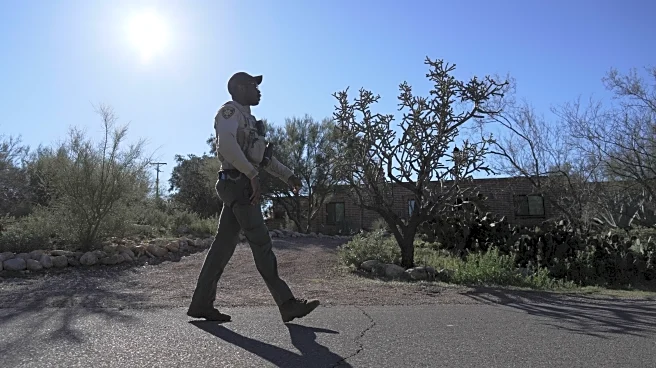Rapid Read • 8 min read
German Chancellor Friedrich Merz has invited President Trump, Ukrainian President Volodymyr Zelensky, NATO's chief, and several European leaders to virtual meetings scheduled for Wednesday. These meetings are set to occur before a U.S.-Russia summit, as Europe and Kyiv express concerns over potential territorial agreements made without their involvement. The summit between President Trump and Russian President Vladimir Putin is scheduled for Friday in Alaska, but neither Zelensky nor European leaders have been invited. The virtual talks aim to discuss strategies to pressure Russia and prepare for possible peace negotiations, focusing on territorial claims and security issues. European Union foreign ministers have already met to address concerns that Putin might portray Ukraine as inflexible, potentially leading to pressure on Kyiv to concede land or sovereignty.
AD
The upcoming Trump-Putin summit has raised alarms among European leaders and Ukraine, who fear that any territorial concessions could undermine Ukraine's sovereignty and security. The potential for land swaps or other agreements made without Ukraine's participation could have significant geopolitical implications, affecting the balance of power in Eastern Europe. European leaders are keen to ensure that any peace negotiations do not reward aggression or alter state borders by force. The situation underscores the importance of international law and the need for Ukraine's involvement in any decisions regarding its territory. The outcome of these discussions could influence future diplomatic relations and security arrangements in the region.
The virtual meetings organized by Germany are expected to set the stage for the Trump-Putin summit, with European leaders aiming to establish clear red lines and ensure Ukraine's interests are represented. The discussions may lead to coordinated efforts to apply diplomatic pressure on Russia and explore avenues for peace negotiations. The summit's outcome could prompt reactions from NATO and EU member states, potentially affecting their foreign policy strategies. The situation remains fluid, with stakeholders closely monitoring developments and preparing for possible shifts in regional dynamics.
The Trump-Putin summit and the preceding virtual meetings highlight the complex interplay of international diplomacy, territorial integrity, and security concerns. The discussions may reveal deeper geopolitical strategies, including Russia's long-term goals in Ukraine and the broader region. The situation also raises ethical questions about the legitimacy of territorial claims and the principles of self-determination. The potential impact on Ukraine's aspirations to join NATO and the EU could have lasting implications for its political and economic future.
AD
More Stories You Might Enjoy











